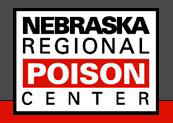 Below are some tips from the Nebraska Regional Poison Center on growing a safe garden:
Below are some tips from the Nebraska Regional Poison Center on growing a safe garden:
- Be cautious when spraying pesticides and other chemicals. Many are toxic if ingested, and even prolonged skin contact or inhalation during use of product can cause toxic symptoms. Symptoms of pesticide poisoning may include irritation of the skin, eyes and lungs, as well as muscle cramps, vomiting, diarrhea and sweating. If you experience these symptoms, call the poison center at 1-800-222-1222 for assistance.
- Pay attention to what you put in your garden. Weeds such as nightshade and nettles often co-exist with planted flowers and shrubs, and can be harmful. Signs of plant poisoning include symptoms ranging from skin irritation to nausea to hallucinations. Some plants when ingested can be toxic to the heart, liver, kidney, stomach and can cause seizures.
- While products may note that they are “green,” “natural” or “organic,” these are terms that are used interchangeably and don’t necessarily mean the products are harmless. Regardless of the product, make sure you carefully read the label information before using it.
- Keep pesticides, fertilizers and other gardening chemicals in their original containers, and out of the sight and reach of children.
- Do not apply pesticides on a windy day or in children’s sand boxes.
- Wash hands after contact with any chemical.
- Store seeds, bulbs and plant food out of the reach of children; some seeds and bulbs can be coated with insecticides.
- Consider all mushrooms found outside unsafe.
- Call the poison center at 1-800-222-1222 immediately if you suspect a child has touched, breathed or swallowed pesticide, fertilizer or parts of a plant.